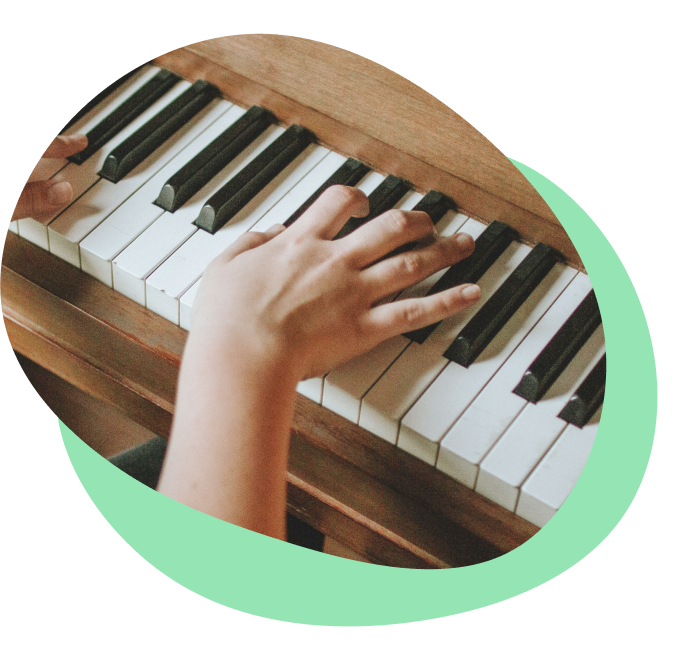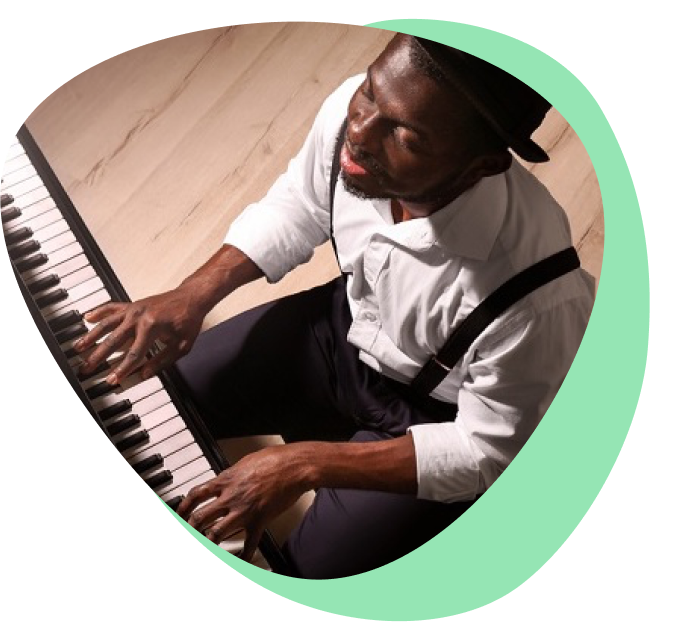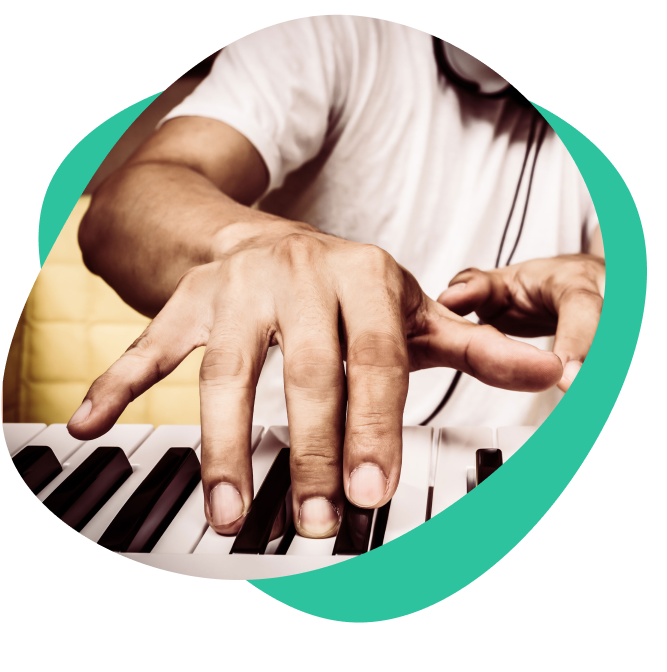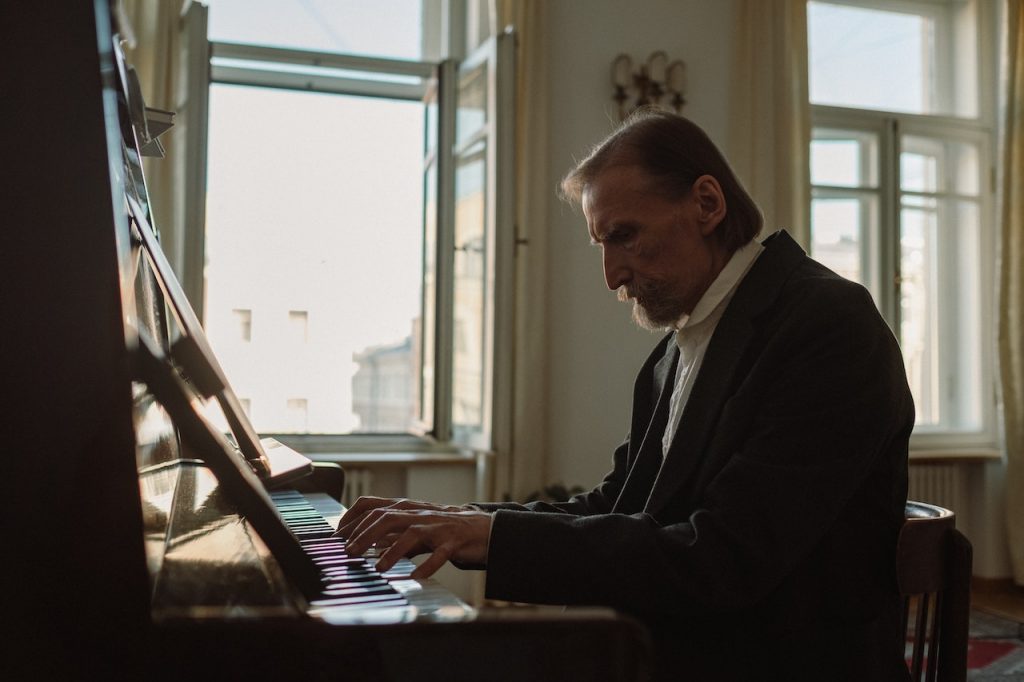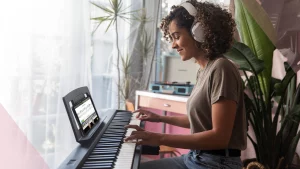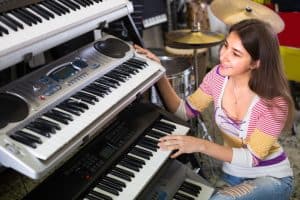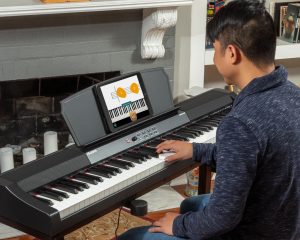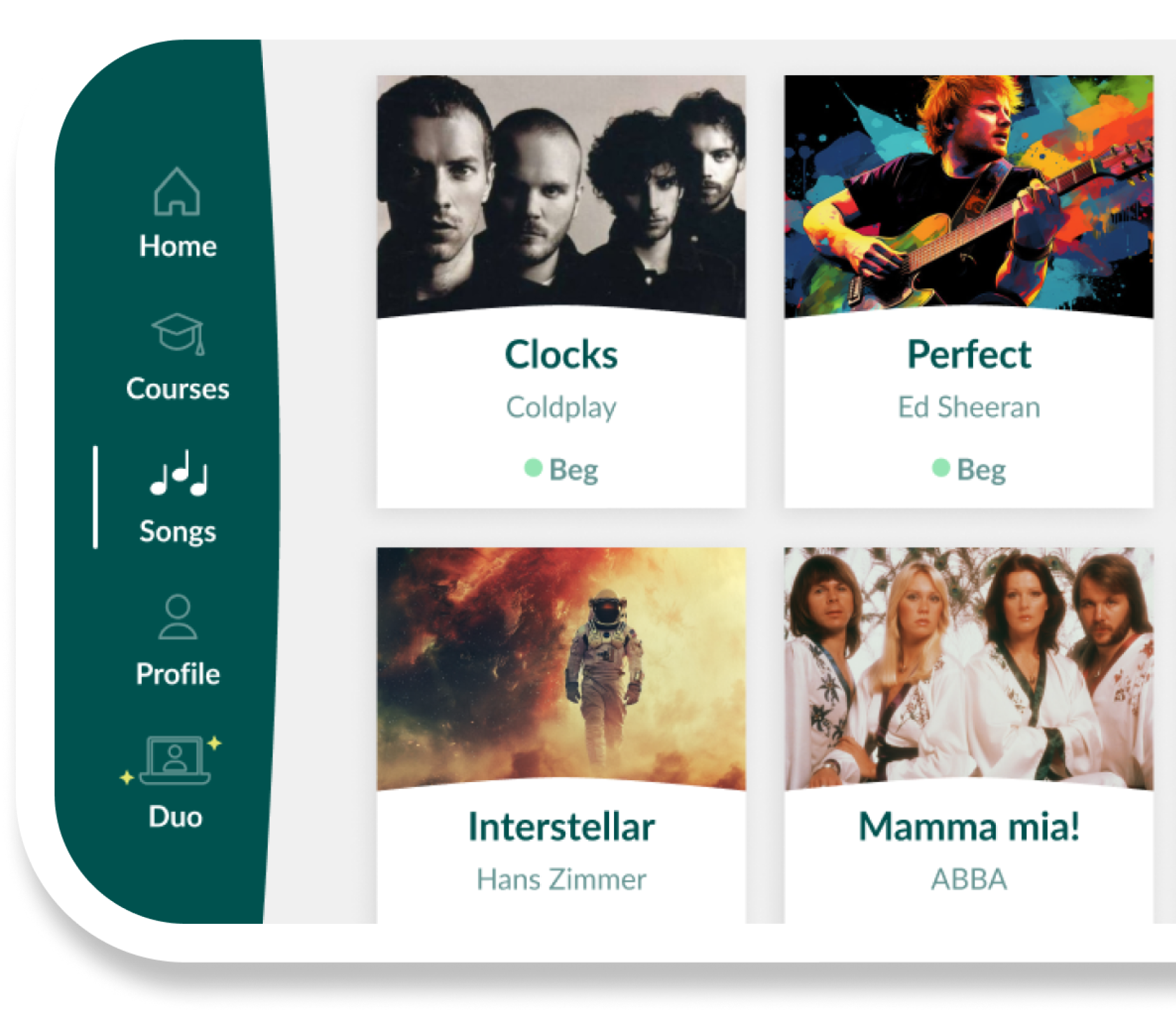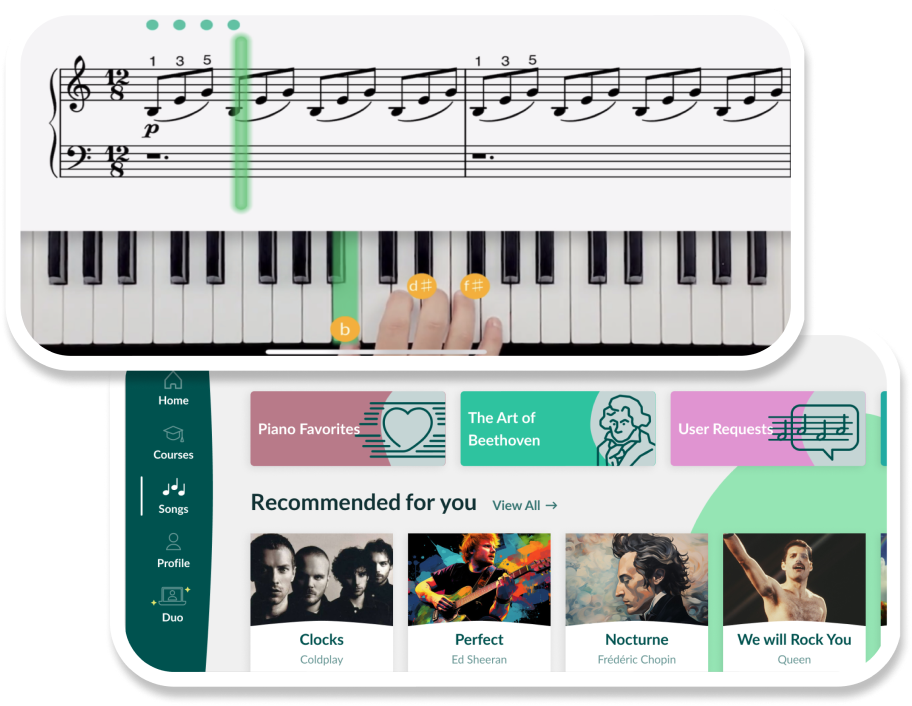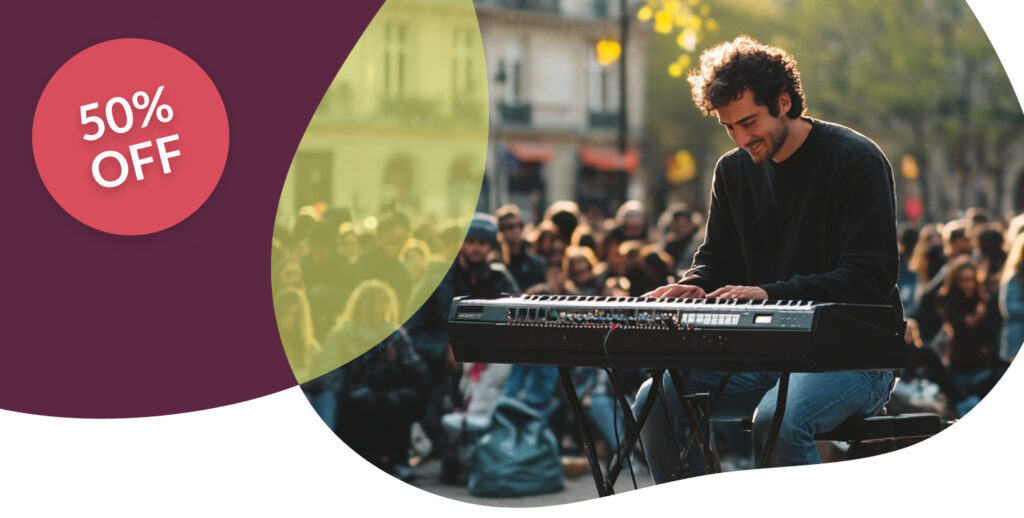You’re cruising around the age of 50 and a question pops into your mind: “Am I too old to learn piano?” Let me be clear—absolutely not! Whether you’re 50, 60, or even 70, it’s never too late to dive into the world of piano. In this comprehensive guide, we’ll explore why age is just a number when it comes to learning piano. So, stick around if you’ve ever wondered if it’s too late, too hard, or simply too “out there” to start learning piano at an older age.
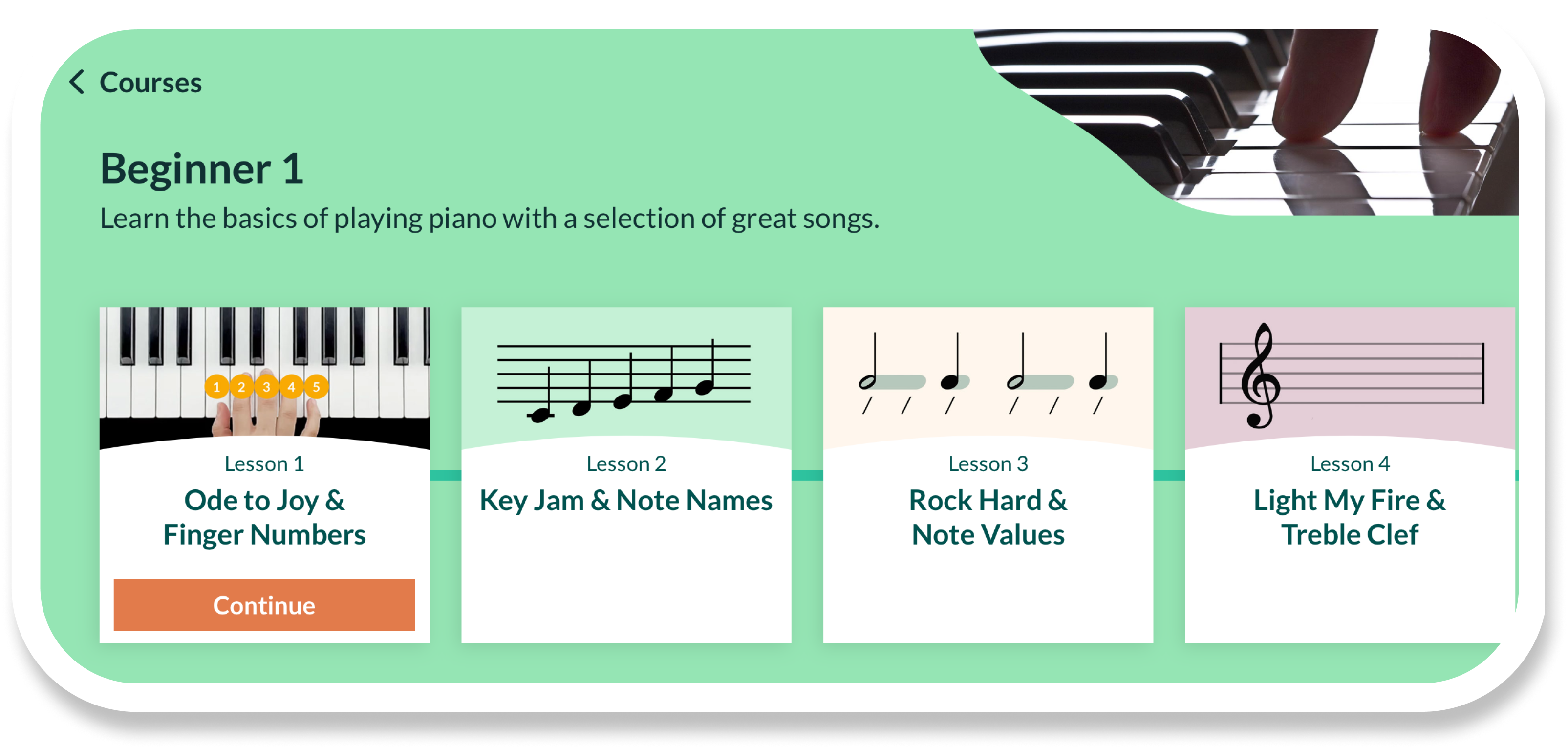
The advantages of learning piano as a senior
In this section, we will talk about why your age isn’t a hindrance but actually a superpower when it comes to learning how to play the piano.
Wisdom and emotional depth
First off, let’s give a standing ovation to life experience. You’ve seen things, felt things, and that emotional depth can translate beautifully into your music. Youngsters might have the agility, but you’ve got the emotional vocabulary.
Patience
Remember the days when you couldn’t sit still for more than five minutes? Well, those days are long gone. One of the perks of being older is the patience you’ve cultivated over the years. This is a game-changer in learning any instrument, especially the piano.
Time management skills
You’ve been around the block, you know how to manage your time. This is crucial when it comes to consistent practice, which is the cornerstone of mastering any skill. So, if you’re worried about “is it hard to learn piano at an older age,” remember that your time management skills are top-notch.
The social aspect
Let’s not forget the social benefits. Joining a community of like-minded individuals can be incredibly rewarding. Whether it’s online forums or local meet-ups, piano lessons for adults over 50 often come with a built-in social circle.
The brainy benefits
Learning piano at 60 or even 70? Your brain will thank you. Studies have shown that learning an instrument can improve cognitive function and even slow down the aging process of the brain. So, not only are you learning a new skill, but you’re also keeping your mind sharp. Talk about a win-win!
Potential difficulties that seniors can face
So you’ve been eyeing the piano bench, but there’s a nagging question in your mind: “Is it hard to learn piano at an older age?” Let’s be honest about it; there are indeed certain physical challenges. But guess what? There are also ways to overcome them.
Finger flexibility
Young whippersnappers might have the edge when it comes to finger gymnastics, but don’t let that discourage you. There are plenty of finger flexibility exercises designed specifically for piano lessons for seniors.
Hand-eye coordination
You might think your hand-eye coordination isn’t what it used to be. While that might be true to some extent, practice makes perfect. The more you play, the better you’ll get at syncing those hands with those keys.
Stamina and endurance
Let’s face it, you might not have the energy you had at 20. But who says you need to? Piano lessons for adults over 50 often focus on shorter, more frequent practice sessions. This approach is easier on your body and can actually accelerate your learning.
Joint concerns
Arthritis or joint pain can be a concern when you’re learning piano at 60 or beyond. The key here is to listen to your body. Take breaks, stretch, and consider investing in an ergonomic piano bench.
The mental game
Sometimes the biggest hurdle isn’t physical; it’s mental. You might be thinking, “Is it too late to learn piano?” The answer is a resounding no. Your age can actually be an asset, as we discussed in the previous section.
Getting started on your piano journey
Alright, you’re ready to get those fingers dancing on the keys. But wait, where do you start? Let’s talk about choosing the right piano and the learning methods that suit your golden years.
The right instrument
First things first, you need a piano. But not just any piano—a piano that suits your needs and living situation. Here are some options:
- Acoustic piano: Great for sound but requires space and maintenance.
- Digital piano: Compact and more affordable. Ideal for smaller living spaces.
- Keyboard: Portable and budget-friendly but might lack some advanced features.
Learning methods
Now that you’ve got your instrument, let’s talk learning methods. The good news? There’s a buffet of options tailored for piano lessons for adults over 50.
- Traditional lessons: One-on-one with a teacher. Great for personalized feedback.
- Online courses: Flexible and convenient. Skoove, for instance, offers a range of online piano lessons that you can take at your own pace.
- Community classes: Offered at local community centers, these are a great way to combine socializing with learning.
- Forums: A great place to ask questions, share your progress, and get advice.
- Facebook groups: Search for groups focused on learning piano at 60 or even 70. You’ll find a supportive community ready to share tips and resources.
Tips and strategies for success
You’re all set with your piano and learning method, but how do you ensure that you’re not just hitting the keys but actually making music? Here’s some tailored advice for older students to keep you on the path to piano greatness.
Consistency over intensity
You might think you need to practice for hours on end. Nope! Consistency beats intensity every time. Short, focused sessions are the way to go, especially when you’re looking into piano lessons for adults over 50.
Mindfulness in practice
Being present during your practice can make a world of difference. It’s not just about the piano notes; it’s about how the music makes you feel. This is particularly important for older students who can bring a lifetime of emotional depth into their music.
Leverage technology
Who says tech is just for the young? Use apps like Skoove to supplement your learning. It’s like having a piano teacher in your pocket 24/7.
The buddy system
Learning with a friend can be incredibly motivating. Whether it’s a spouse, a friend, or a community member, a little friendly competition never hurt anyone.
Keep it fun
Remember, you’re not training for a concert at Carnegie Hall (or maybe you are, who am I to limit your dreams?). The point is to enjoy the process. Choose pieces that you love and that bring you joy.
Stay inspired
Whenever you feel stuck during the learning process, listen to music that inspires you, or watch videos of pianists you admire.
Health first
Don’t forget to take care of your body. Warm up before you start, take breaks, and listen to your body. If something hurts, stop and seek advice.
Celebrate the small wins
Learned a new piano chord? Nailed that tricky section? Celebrate it! Small wins keep you motivated and make the journey worthwhile.
Age is just a number
Whether you’re considering piano lessons for seniors, pondering if you’re too old to learn piano, or you’re a lively 60-something ready to embark on a new adventure, the keys are waiting for you.
Remember, age isn’t a barrier; it’s a treasure trove of wisdom and experience that you bring to each note you play. From choosing the right piano and learning methods to overcoming physical challenges and finding resources, you’re more equipped than ever to make beautiful music.
Author of this blog post:

Eddie Bond is a multi-instrumentalist performer, composer, and music instructor currently based in Seattle, Washington USA. He has performed extensively in the US, Canada, Argentina, and China, released over 40 albums, and has over a decade experience working with music students of all ages and ability levels.




